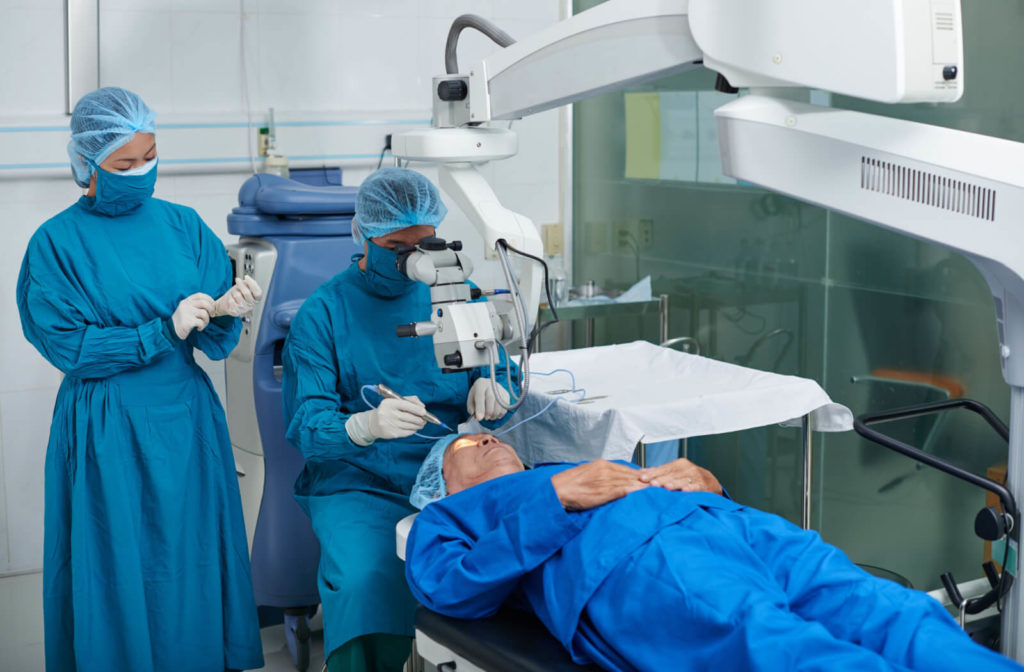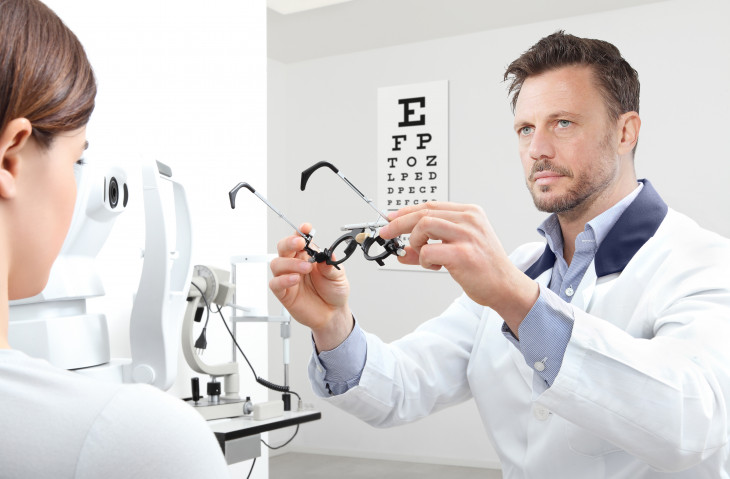The Importance of Regular Exams with an Eye Doctor Optometrist
The Importance of Regular Exams with an Eye Doctor Optometrist
Blog Article
Recognizing the Comprehensive Duty of an Optometrist in Modern Eye Care
With improvements in innovation and an enhancing emphasis on preventive care, eye doctors are important in diagnosing and handling chronic eye conditions, while additionally engaging in very early condition discovery. Exactly how do these obligations converge with their duty in advertising overall eye wellness, and what does this mean for client results in a collective healthcare environment?
Expanded Scope of Technique
In current years, the function of eye doctors has advanced significantly, with lots of experts now accepting a broadened extent of technique that extends past standard eye examinations. Their duties now include a vast range of solutions, including suggesting medications for ocular problems, taking care of chronic eye conditions, and performing small surgical treatments.
Further, optometrists are currently more involved in collective care, functioning carefully with ophthalmologists, main treatment physicians, and various other health care experts to make certain alternative client treatment. This interprofessional collaboration is vital in handling complicated instances that need a multidisciplinary technique. In addition, optometrists are playing an essential role in public wellness initiatives, such as vision screenings and eye wellness education, focused on improving area health results.
The increased scope of practice for eye doctors not only improves their capability to supply comprehensive care but likewise attends to the expanding demand for effective and accessible eye treatment solutions, contributing to overall healthcare improvements.
Early Illness Detection
Early detection of eye diseases is significantly ending up being a focal point in the increased role of optometrists. As main eye care providers, eye doctors are distinctly placed to identify very early signs of eye conditions such as glaucoma, macular deterioration, diabetic person retinopathy, and cataracts. This critical role is vital, as early medical diagnosis can substantially boost the administration and diagnosis of these problems, potentially stopping vision loss and enhancing person end results.
Optometrists utilize comprehensive eye assessments to spot refined modifications in vision and eye health and wellness. These assessments usually consist of assessments of visual skill, intraocular pressure, and retinal health. The ability to identify early signs of systemic health concerns, such as hypertension and diabetes, via ocular signs better emphasizes the relevance of regular eye examinations. Early intervention is not only advantageous in preserving vision yet also in minimizing medical care prices connected with advanced illness treatments.
Additionally, optometrists play a crucial role in individual education, emphasizing the relevance of routine eye examinations as component of total health care. By cultivating a proactive technique to eye treatment, optometrists add significantly to public health, ensuring conditions are captured and managed properly before they can advance.
Advanced Diagnostic Methods
Advanced diagnostic methods have changed the method of optometry, making it possible for practitioners to detect and keep track of ocular conditions with extraordinary precision. Technologies such as optical comprehensibility tomography (OCT) offer high-resolution, cross-sectional images of the retina, facilitating early discovery of conditions like glaucoma and macular deterioration.
An additional vital advancement is electronic retinal imaging, which records thorough views of the retina utilizing high-def cams. This modern technology is critical in identifying changes in retinal structure gradually, therefore helping in the monitoring of conditions like diabetic person retinopathy. Visual field testing, enhanced by computer-aided systems, permits for exact mapping of an individual's area of vision, crucial in identifying and tracking glaucoma progression.
Corneal topography, one more notable diagnostic device, generates topographic maps of the cornea's surface area. This is particularly helpful in fitting contact lenses and planning refractive surgery. go to this website These advanced diagnostic strategies collectively enable optometrists to provide aggressive, targeted care, guaranteeing much better client outcomes and enhancing their pivotal role in eye health administration.
Managing Persistent Eye Conditions
Managing persistent eye conditions is a foundation of optometric treatment that needs a detailed understanding of different eye diseases and their long-lasting implications. Eye doctors play an essential duty in monitoring, diagnosing, and handling problems such as glaucoma, diabetic person retinopathy, and age-related macular deterioration. These problems, if left untreated, can bring about significant aesthetic problems or blindness, highlighting the essential importance of ongoing treatment and monitoring.
Optometrists use a series of diagnostic devices, including optical comprehensibility tomography (OCT), aesthetic field testing, and fundus photography, to assess the development of these chronic conditions. By carefully checking modifications in eye health, optometrists can change therapy plans to reduce illness development. This might entail suggesting drugs, recommending way of living modifications, or coordinating with eye doctors for medical interventions when needed.

Role in Preventive Care
Preventive care is an essential facet of optometry that concentrates on keeping eye wellness and avoiding the onset of eye diseases. Eye doctors play an essential function in early discovery and prevention, utilizing routine eye assessments to identify danger factors and subtle adjustments in eye wellness. Opticore Optometry. These evaluations are not just about vision correction but incorporate a thorough analysis of eye features and frameworks, allowing the recognition of conditions such as glaucoma, cataracts, and macular deterioration at a very early phase
Along with diagnostics, optometrists educate people on lifestyle choices that advertise eye health, such as appropriate nutrition, UV protection, and the importance of routine eye check-ups. They recommend on the correct use of digital gadgets to avoid electronic eye stress, a growing issue in the digital age. Optometrists home additionally supply guidance on safety eyewear for work-related and leisure tasks, reducing the danger of injury.
Preventative eye care encompasses systemic health and wellness concerns that manifest in the eyes, such as diabetes mellitus and hypertension. By working together with various other health care experts, eye doctors contribute to holistic client care, stressing the interconnectedness of systemic and eye health. This positive approach is important in securing aesthetic acuity and total well-being.
Final Thought
Optometrists now occupy a pivotal duty in modern-day eye care, identified by an expanded range that consists of identifying and taking care of persistent eye try these out conditions, suggesting medications, and carrying out minor operations (Eye Doctor). Their proficiency in early disease discovery is enhanced by sophisticated diagnostic techniques such as optical comprehensibility tomography and digital retinal imaging. By emphasizing preventative care and patient education and learning, optometrists contribute dramatically to general eye health, working together with various other medical care experts to guarantee efficient and thorough client end results

In addition to diagnostics, optometrists educate clients on lifestyle choices that promote eye health and wellness, such as appropriate nourishment, UV defense, and the value of routine eye check-ups.Precautionary eye care expands to systemic health problems that show up in the eyes, such as diabetic issues and hypertension.Optometrists currently occupy a critical duty in modern eye care, characterized by an increased extent that includes identifying and taking care of chronic eye conditions, suggesting drugs, and performing minor medical treatments.
Report this page